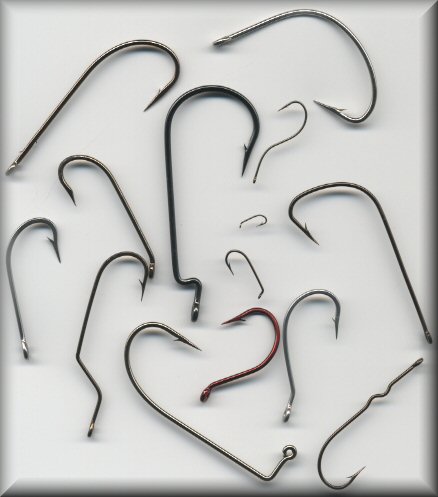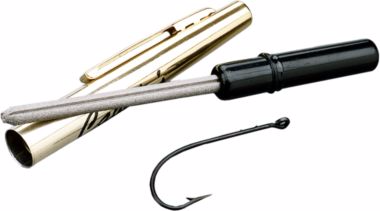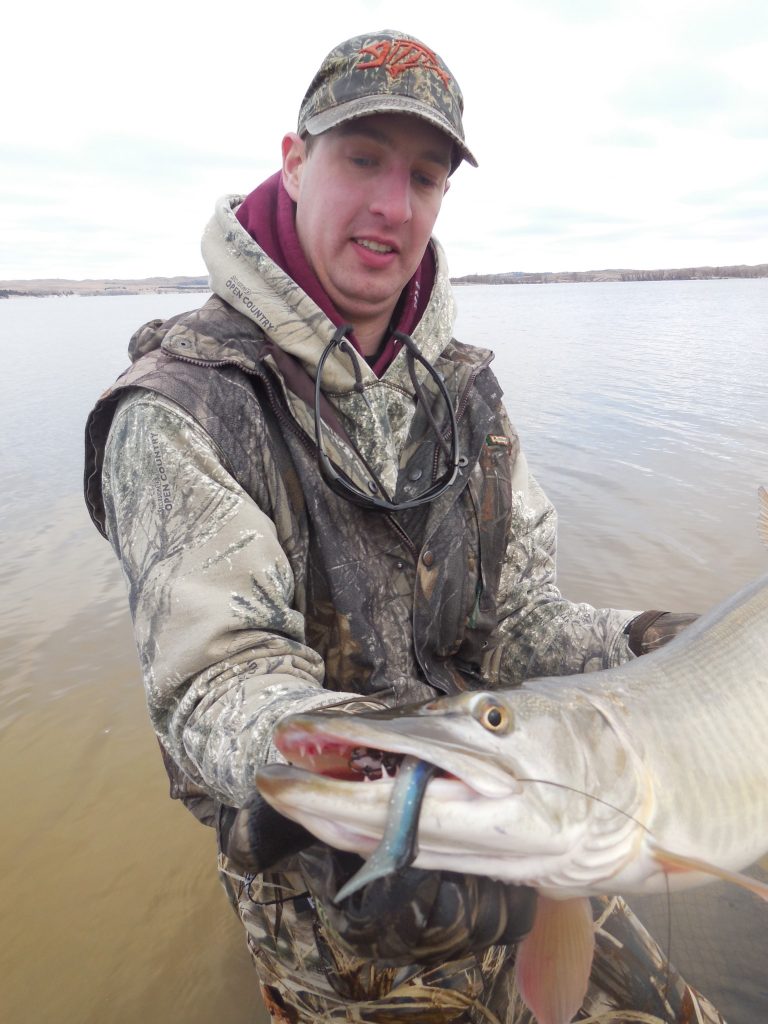There is nothing worse than losing a big fish:
“Sorry Hunny, that fish is gawwn.”
Ouch, afraid to say, I know the feeling, so do you.
That video advertises good line; equipment failure certainly is one reason you can lose a fish. . . . So is operator error. But, I would say that other than those excuses, which would be good blogs for another day, the biggest reason fish are lost is because the hooks were not sharp! Sharp hooks are especially critical in fishing situations that require light lines or in situations that require large hooks, but there is no doubt that sharp hooks will put more fish in the net regardless of the situation.

There are a number of hook options on the market nowadays and some of the premium hooks are extremely, “surgically”, sharp. They cost more, but can be worth it–“you get what you pay for.” However, in spite of their availability, it is not practical, nor am I going to tell you that you must always be fishing with the most expensive hooks. In some situations, yes, absolutely, spend the extra money, but you likely will not be able to use high-end premium hooks for everything. On the other hand, you should use quality hooks ALL THE TIME even if they are not the most expensive.
Those boxes of 500 assorted hooks for $1.99? Forget about it. Mustad, Eagle Claw, Owner, all are companies that offer a variety of quality hooks for every fishing situation. Use ’em.
Start with quality hooks and then learn to sharpen them. But, before I talk about sharpening, let me say that in some cases it is a waste of time to try to sharpen hooks–just replace them. That call will be up to you and depend on the fishing situation and baits being used. Relatively small, single, light wire hooks, quality hooks, are relatively cheap and it is a lot easier to tie on a new one rather than sharpen the old one. Even then I may touch them up with a diamond hook sharpener. With artificial lures that have multiple treble hooks, it may be easier to replace trebles than try to sharpen them, again it depends on the size of the hook and how much time you want to spend being sure they are sharp. I will tell you that many baits right out of the box have hooks that leave something to be desired. I replace some of them before they ever see the water and on others I sharpen them.
How do you know if they are sharp enough? You will know. I want them to be “sticky” to the touch; you can feel them penetrating by just touching the point. I realize I will never be setting hooks into a fingernail, but I believe that is a good way to check hook sharpness–test them on your thumbnail. If I have a hook that will not immediately start to penetrate my thumbnail, if it skips at all, I sharpen or discard. You can tell I have been working on hooks by looking at my thumbnails (don’t need no stinkin’ manicure, Ha).
So, is there a right way to sharpen hooks? I suppose that is true, and I suppose if you search the internet you can find all kinds of good ideas. The best I know of goes back years to a crankbait designer/maker and hardcore bass angler who used to have articles published in Fishing Facts magazine, Tom Seward. Tom had great innovative ideas about crankbaits and fishing them for big bass and I remember an article he wrote about sharpening hooks. I found a .pdf online from Luhr-Jensen, for whom Tom worked, that has his ideas on hooks and instructions on how to sharpen them. . . .
It is only two pages, look ’em over!
If you are looking for a hook file like that recommended, try these, Luhr-Jensen Hook File , Rollie & Helen’s Musky Shop Hook Files .
Make sure you start with sharp hooks when you start fishing for the day. Be sure they are sharp before you ever tie them on. Then, do not forget about them! Periodically check your hooks for sharpness while fishing, and that is especially important if you have been catching fish or banging baits onto rocks or some other hard object. They will get dull while fishing and you may need to take a few minutes to replace them or touch ’em up.
Make sure your hooks are sharp, you will not regret it!
The post Sharp Hooks appeared first on NEBRASKALand Magazine.

















